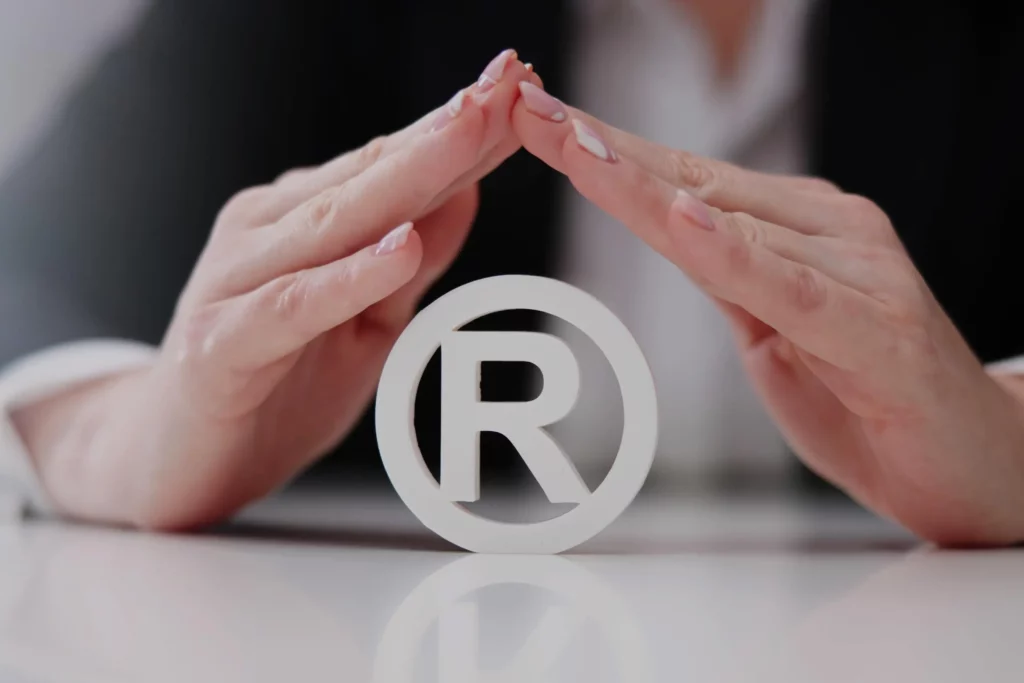
Are you a consumer of Apple products? Do you love Starbucks? How about Walmart? These easily recognizable brands have filed what are called trademarks with the United States Patent and Trademark Office (USPTO).
What is a trademark? What is its purpose? Can anyone file? What is the registration process required? Do you have to be a business owner to file for a trademark?
Buckle up friends; today we will review and debunk a few common myths surrounding trademarks.
First, let’s define what a trademark is. In simple terms, a trademark is a distinctive symbol, word, or phrase used to represent an organization, a business, or its products and is registered with the USPTO.
- Myth: Only Big Corporations Use Trademarks
This is false. Companies of all sizes, including the entrepreneur working from their dining room table will have the legal protection that can only be obtained with a registered trademark.
By definition, a trademark will keep your brand’s identity safe as you build your business. It will also thwart other entities from illegally using your logo, name, or a catchphrase that sounds like yours.
- Myth: A Registered Business or Fictitious Name Offers the Same Protection as a Trademark
Trademarks use marks. A mark is a logo, a name, or a phrase. Simply registering a business name does not provide the business owner with the best protection provided by a trademark.
- Myth: The Trademarking Process is Complex and Expensive
The answer to this is yes and no. If you were to go online to review the registration process and conduct a search yourself for your intended trademark name, you might become overwhelmed and decide it is not worth it. It can be daunting, but an experienced trademark attorney will simplify the process for you thereby ensuring you obtain the correct trademarks that will help against threats made against your brand.
Is it expensive? In short, the answer is no. Consider the cost of obtaining a trademark vs. the legal costs of defending your reputation and brand. Again, an experienced trademark attorney will make the appropriate recommendations and guide you through the process.
Remember, every case is different.
- Myth: You Can Trademark Anything
False. You cannot trademark a curse word, an offensive term, a generic phrase, or an offensive symbol. Remember, your mark is what identifies you in the marketplace and individualizes you from your competitors.
- Myth: Trademarks and Copyrights Are the Same
This is false. These two processes are entirely different for they protect different matters and the process for each of these concepts is different.
A copyright only protects original work and is generated automatically upon creation. A trademark protects items that distinguish one business from another and is established via the use of a mark while conducting business.
- Myth: Trademarks Are Only Good as a Legal Protector
Indeed, a trademark will offer some legal protection for the name of your brand, your logo, and your slogan. However, in addition to protecting you against a potential infringer, a trademark also boosts the value of your brand. It will make your brand more legitimate in the eyes of your customers and clients.
- Myth: A Business Owner Should Wait Until They Are “Big Enough” to Register a Trademark
Not! You should not wait to register a trademark the same way you wouldn’t wait until you’re “big enough” to obtain a website domain for your business or business bank account! Those are actions you would take early on as you build your brand. It makes sense to register a trademark early on when building your business.
- Myth: Set a Trademark and Forget It
False! Trademarks are not one-and-done deals! You are required to complete regular filings and renewals to preserve your trademark registration and keep others from either purposefully or accidentally infringing on your trademark, confusing your market, and potential customers. This will prevent the offender from benefiting from your hard work. You should also implement processes that will help you regularly review the use of similar marks by others and enforce your rights.
During your registration process, the attorneys at USPTO are good at catching conflicts, but mistakes do occur. Your trademark attorney will help in keeping your trademark safe and secure and avoid expensive litigation.
- Myth: Your Mark will Provide Absolute Protection from Infringement
Your mark will not be approved for the trademark your company requests to use. The determination of a mark is not necessarily who was first to register it but rather by who was first to use it in commerce.
However, early registration can be helpful.
- Myth: Your Mark Isn’t Identical to Another, So It’s Not Infringement
Identical marks do not necessarily indicate infringement. Generally, what is taken into consideration is whether the offending marks look or sound like yours and if the services offered by that company are like yours.
- Myth: You Should Wait to File if You’re Not Using Your Mark
It is not essential to be using your mark to file for a trademark. However, you will be required to have it in use before registration. Remember, trademark applications should be filed as soon as possible. This way you can avoid conflicts with marks that have been previously filed.
- Bonus Myth: There is No Reason to Protect Your Brand
This gets a loud and adamant False! There is every reason to protect your brand. Just go back and review the myths already outlined here.
Registering for and obtaining a trademark for your brand is the best thing you can do as you expand your business, and it begins to gain traction and recognition. You’ve worked hard on your business. Don’t let these myths, or any other myths and false ideas you may encounter keep you from protecting all that you’ve accomplished.
Seek and follow the advice of a trademark attorney who will lead and counsel you so you can get back to the business of building your legacy; your empire!
You won’t regret it!
Unlock Full Article
Watch a quick video to get instant access.










